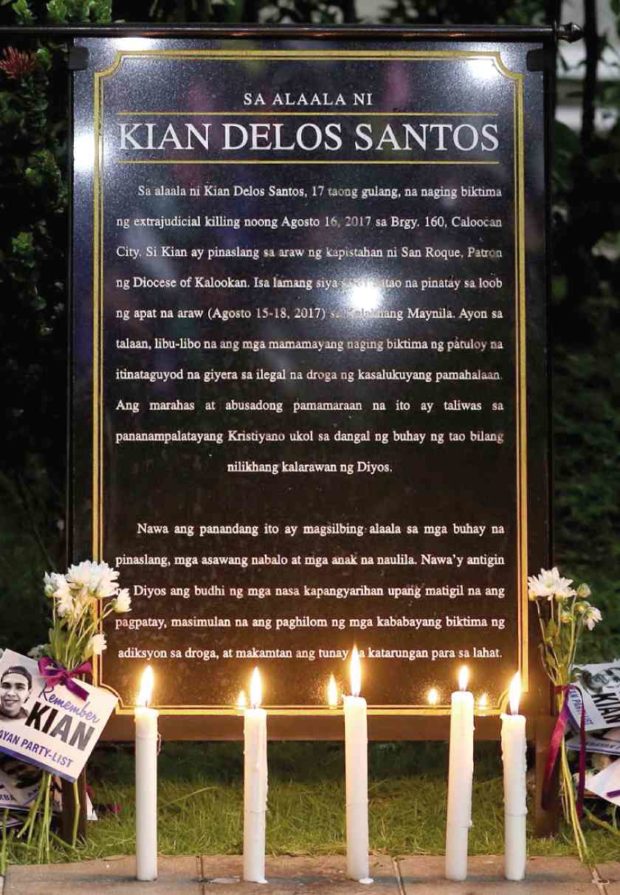Local execs share blame for deaths – expert

DRUG WAR CASUALTY A marker was unveiled at the San Roque Cathedral in Caloocan City for one of the casualties in the war on drugs, Kian delos Santos.–RICHARD A. REYES
Town mayors and their village heads should also take some of the blame for deaths in the government’s war on drugs.
Ateneo School of Government dean Ronald Mendoza said some local officials had enabled deadly encounters in their jurisdictions with some narcopoliticians ending up on law enforcers’ order of battle.
In his presentation during the “Media and the War on Drugs” forum of the Center for Media Freedom and Responsibility, Mendoza said the drug war should not be assessed only through body count, but also through local governance and environment.
Waiting for rewards
Mendoza said local officials supported deadly antidrug operations in their areas at the start of the drug war because they wanted to get rewards from higher officials.
But this resulted in quelling criticism of the drug war and led to a culture of impunity that has since overtaken drug enforcers.
However, there are also mayors and village heads who undertook measures to prevent killings in their jurisdictions, he said.
“We know a number of mayors who wanted to emphasize rehabilitation [and] partnered with the police, the Church, academic institutions and tried to protect their citizens [and] minimize the killings,” Mendoza said.
Mendoza said he conducted a study that suggested that deaths in the drug war were not really widespread but concentrated only in certain areas, like Quezon City, Caloocan and Manila in Metro Manila, and Bulacan, Cebu and Pampanga in the provinces.
For further study
But Mendoza stressed that the matter needed to be studied further, particularly the dynamics between mayors, barangay chairs and law enforcers as well as the conditions in their jurisdictions.
Barangay officials, for instance, were empowered to shape the drug war by identifying suspected drug users and dealers in their communities with the police, but there was no process identified to verify such information.
Mendoza urged mayors to take a more proactive approach by offering alternative measures to promote reform and prevent further deaths.